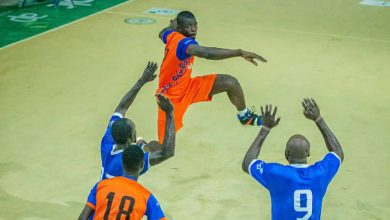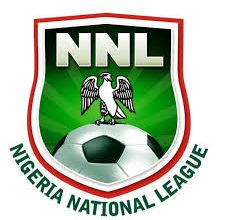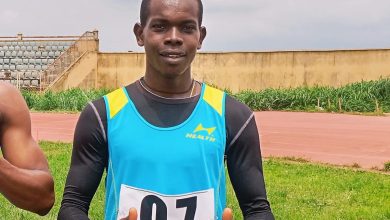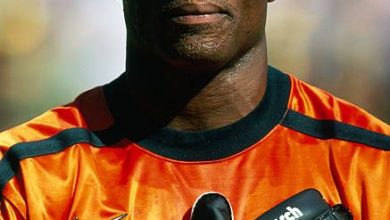Corruption trial: Former IAAF boss, Diack brands son as “thug”
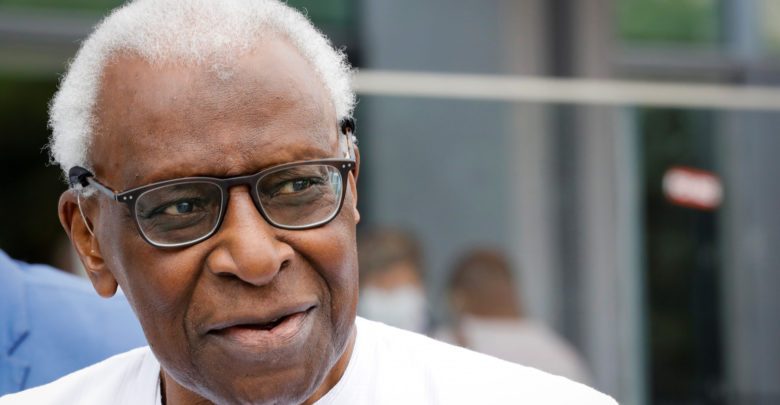
Former IAAF President Lamine Diack has criticised his son at his corruption trial in Paris, branding him “a thug.”
Diack, 87, made the remarks about his son Papa Massata under questioning, after claiming he only learned from investigators that his son, who is not present in person at the trial, was involved in doping files, as reported by L’Equipe.
Appearing before the 32nd Chamber of the Paris criminal court, the former boss of the International Association of Athletics Federations (IAAF), now World Athletics, spoke in court today about alleged corruption within the organisation during his tenure at the helm from 1999 to 2015.
Under questioning, Diack refused to establish a clear link between the management of Russian doping cases and funding of $1.5 million (£1.19 million/€1.32 million) to contribute to the defeat of his rival Abdoulaye Wade in the 2012 Presidential election in Senegal.
In relation to the management of the doping cases, Diack told the court that he made the decision to spread out disciplinary sanctions against Russia, claiming he did so in order to protect the IAAF’s finances.
“The financial health {of the IAAF} had to be safeguarded, and I was ready to make this compromise,” Diack said.
Diack, whose speech was described as “disjointed” during his appearance was also asked about allegations that he obtained Russian funds to support Macky Sall’s 2012 bid to become President of Senegal, in exchange for the IAAF’s anti-doping arm covering up offences by the country’s athletes.
When questioned by judge Rose Marie-Hinault, who is overseeing the trial, on this point Diack’s answer was hazy.
Referring to the Russians he said: “It was they who asked me if I wanted to be a candidate”, before going on to concede that the sum of “1.5 million dollars” has mentioned to the country’s then Minister of Sports Vitali Moutko.
Diack claimed that the sum of $1.5 million had come from Russia, and that he sought the amount from the former boss of the Russian Federation of Athletics (ARAF), Valentin Balakhnitchev, who is also on trial as part of the case.
Diack claimed in court that he was not aware of the financial blackmail exercised against doped Russian athletes, who were forced to pay hundreds of thousands of euros to benefit from so-called “total protection.”
Prosecutors had claimed that Diack solicited €3.45 million (£3.1 million/$3.9 million) from athletes to conceal their doping offences, allowing them to participate in events like the London 2012 Olympic Games and the 2013 World Athletics Championships in Moscow.
The delay in sanctions against Russian athletes allowed them to participate in these major events, before they were ousted for doping several years later.
Diack claimed this was not part of his original plan and that he had obtained guarantees from Balakhnitchev that they did not appear in the doping charts.
He went on to highlight the case of one of the athletes, marathon runner Lilya Shoboukhova, who he claimed “ran and abandoned” at the London 2012 Games.
In response judge Hinault said: “The idea that someone takes part in order not to win is to fake the results, it’s not sport!”
The case will continue tomorrow with the hearings scheduled to last six days.
Speaking outside the court following the day’s proceedings Diack’s lawyer Simon Ndiaye said his client was not intending to be uncooperative by giving limited answers to questions.
“I’m not a doctor but I think that because of his age, there are things he doesn’t fully understand in the questions that are asked of him,” Ndiaye said, as reported by New Haven Register.
Ndiaye added that Diack wanted to “clear his name” and denied suggestions that he was unwilling to answer questions about the case.
The other defendants in the case are Massata Diack, Lamine Diack’s former advisor Habib Cisse, Gabriel Dolle, the former anti-doping chief at the IAAF, former ARAF President Balakhnichev and Alexei Melnikov, the former head Russian athletics distance coach.


